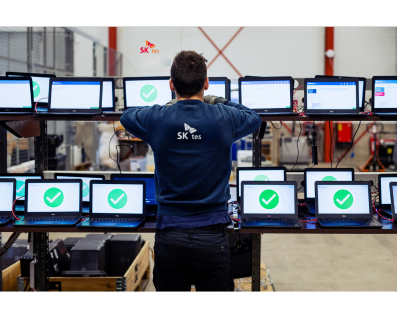In the dynamic landscape of modern business, a paradigm shift is underway, challenging traditional models and championing a more holistic approach. Business with purpose, a concept gaining significant traction, has emerged as a transformative blueprint for sustainable success.
Beyond the pursuit of profits, this approach places equal emphasis on social and environmental responsibility, creating a symbiotic relationship between financial gains and positive impact.
In this article, we explore the essence of business with purpose and 6 key things to note about driving not only sustainable growth but also meaningful contributions to society and the planet.
6 key considerations to make positive impact with business purpose:
1. Understanding Business with Purpose
Business with purpose is an ethos that transcends profit maximization, acknowledging that companies can and should be a force for positive change. It represents a commitment to social and environmental responsibility, recognizing the interconnectedness of economic success with broader societal and environmental concerns. At its core, business with purpose seeks to redefine corporate success, moving beyond short-term gains toward long-term sustainability.
2. The Triple Bottom Line: People, Planet, Profit
A foundational principle of business with purpose is the triple bottom line, a holistic framework evaluating success based on three dimensions: people, planet, and profit. Businesses with a focus on delivering long-term success are not solely focussed on profit at any cost but are integrating people and planet objectives into their core strategies.
a. People: Prioritizing Social Impact and Responsibility
Businesses with purpose prioritize positive social change, manifesting in fair labour practices, philanthropy, and community engagement. According to a survey by Cone Communications, 87% of consumers are more likely to purchase products from companies that advocate for issues they care about. Salesforce, a global tech giant, has set a remarkable example with its 1-1-1 model, donating 1% of product, 1% of equity, and 1% of employee time to philanthropic causes. This commitment not only enhances the company's social impact but also resonates positively with clients.
b. Planet: Commitment to Environmental Stewardship
Environmental sustainability is integral to the triple bottom line, urging businesses to minimize their ecological footprint. According to a Nielsen study, 66% of consumers globally are willing to pay more for sustainable brands. Patagonia, the outdoor apparel company, has demonstrated a profound commitment to the planet through its environmental activism and sustainable business practices. The company's bold stance on environmental issues has not only solidified its brand identity but has also contributed to its financial success.
c. Profit: Economic Viability and Responsibility
While profit remains essential, business with purpose views it to achieve sustainability and positive impact. Companies operating with this mindset understand that long-term financial success is contingent on responsible business practices. Unilever, a consumer goods powerhouse, has embraced this approach through its Sustainable Living Plan, aiming to decouple growth from environmental impact. The plan not only enhances Unilever's reputation but also demonstrates that economic viability and responsibility can go hand in hand.
3. Social Entrepreneurship: A Fusion of Profit and Purpose
Social entrepreneurship embodies the fusion of profit and purpose, utilizing business strategies to address societal challenges. TOMS Shoes, renowned for its "One for One" model, has donated over 96 million pairs of shoes to children in need. This not only exemplifies a successful business model but also showcases the transformative impact that companies can have on communities globally. According to the Global Entrepreneurship Monitor, social entrepreneurship is on the rise, with 4% of the global adult population engaged in social entrepreneurial activities.
4. Corporate Environmental Responsibility: Leading the Green Revolution
Corporate environmental responsibility is a key aspect of business with purpose, urging companies to go beyond compliance and actively reduce their environmental impact. According to a survey by Nielsen, 81% of global respondents feel strongly that companies should help improve the environment. Unilever's commitment to sustainability has not only led to positive environmental outcomes but has also contributed to a 46% increase in sales of its sustainable living brands, outpacing the rest of the business.
5. Employee-Centric Practices: Nurturing Human Capital
Recognizing employees as crucial stakeholders, businesses with purpose prioritize their well-being, diversity, and professional development. According to a survey by Deloitte, 94% of executives and 88% of employees believe a distinct workplace culture is crucial to business success. Google, known for its employee-centric practices, consistently ranks high in employee satisfaction. The company's commitment to fostering a positive work environment not only enhances its organizational culture but also contributes to attracting and retaining top talent.
6. Client Consciousness: Driving Purposeful Choices
Client consciousness is a powerful force shaping the success of businesses with purpose. Our clients increasingly make choices based on the ethical and sustainable practices of companies that service them. Apple, Microsoft, Google and other technology companies are proactively promoting responsible and sustainable sourcing in its supply chain. Also, according to Nielsen, 66% of global consumers are willing to pay more for sustainable brands. The Body Shop, committed to cruelty-free and ethically sourced products, has successfully attracted consumers who prioritize ethical consumption. This underscores the notion that purposeful choices by consumers can drive positive change in the business landscape.
In summary, do good for the right reasons
Business with purpose represents a transformative blueprint for sustainable business success. The triple bottom line, social entrepreneurship, corporate environmental responsibility, employee-centric practices, and consumer consciousness can be integral components of the shift to success.
As the market landscape evolves, embracing a purpose-driven approach may become a strategic imperative. Companies that integrate purpose into their core strategies will not only meet the expectations of clients but also create a positive impact on a global scale. In this new era of corporate responsibility, businesses with purpose stand as beacons of change, demonstrating that a sustainable and prosperous future is not only achievable but also vital for the well-being of our planet and society.
Many examples underscore how companies can thrive while contributing positively to society and the environment. The key to success is to have the right purpose and reason to “Do good”. Such a cause is then genuine and infectious in attracting the right customers and people which then ensures long term success.
Find out more about how SK tes is doing good for the right reasons, download our report below.
This blog is written by:

Alvin Piadasa, Group Sustainability Director
Alvin is a global advocate for sustainable stewardship approaches to Information Communications Technology (ICT) and battery energy management. At SK tes, Alvin is realising the mission to deliver more holistic sustainable approaches in ITAD for IT equipment and data center equipment and more.







